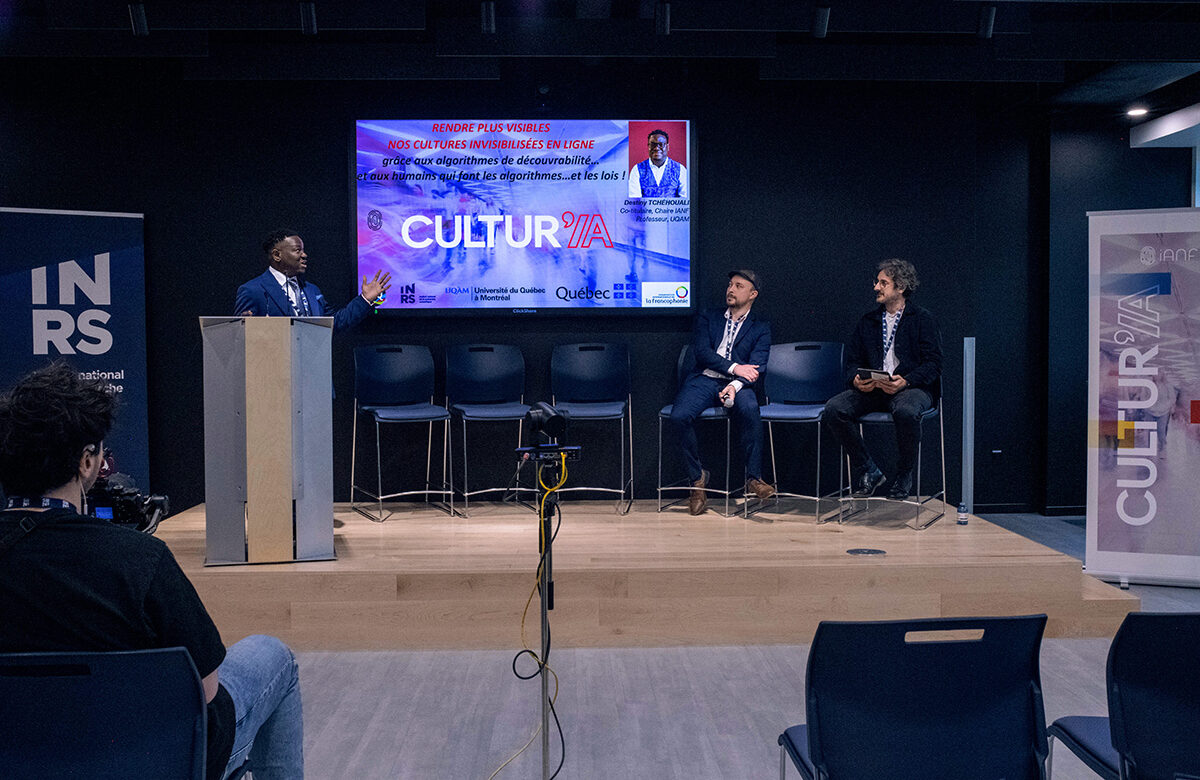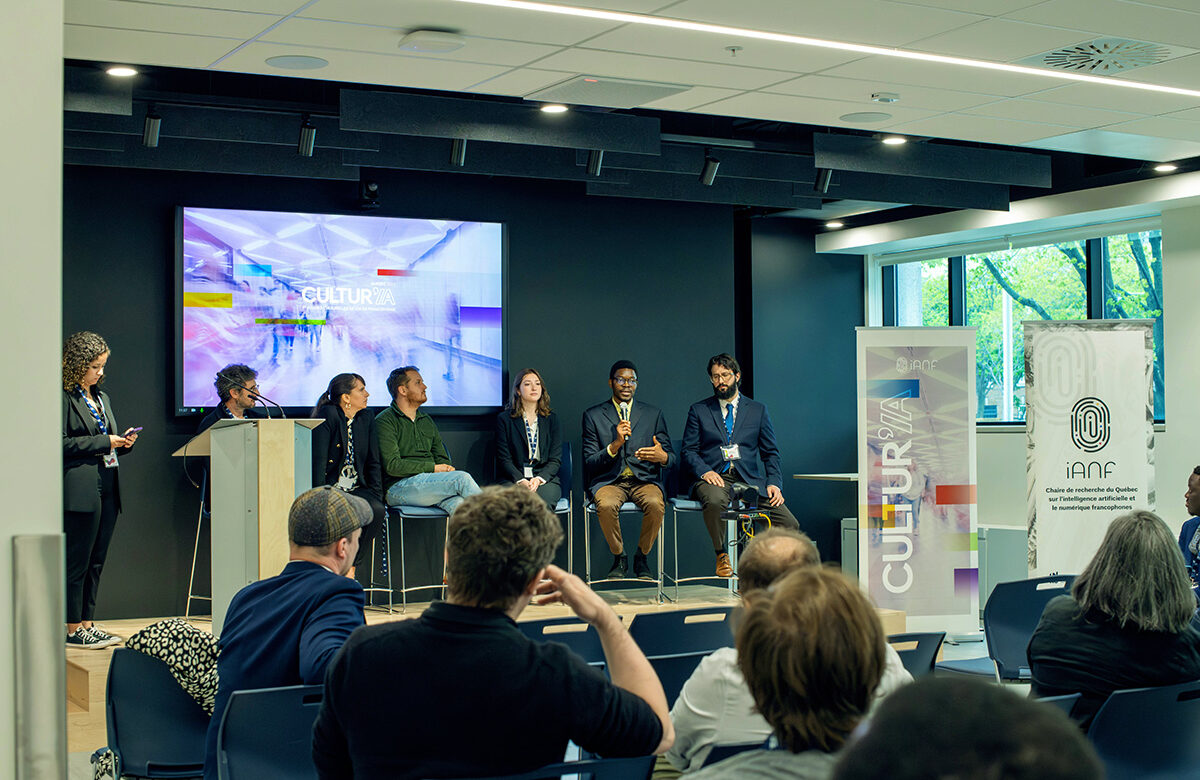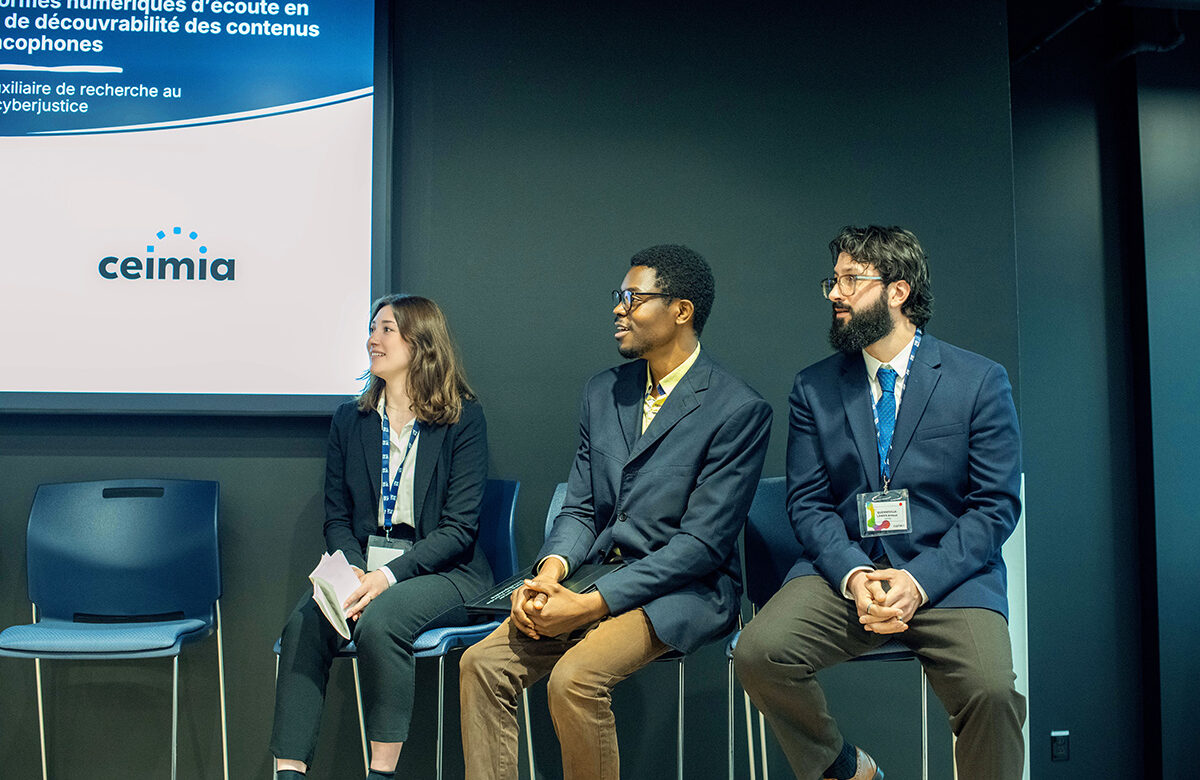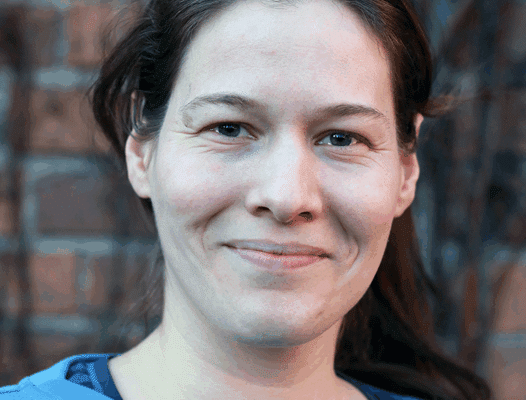- Research
INRS and UQAM at the forefront of key issues in artificial intelligence in culture.
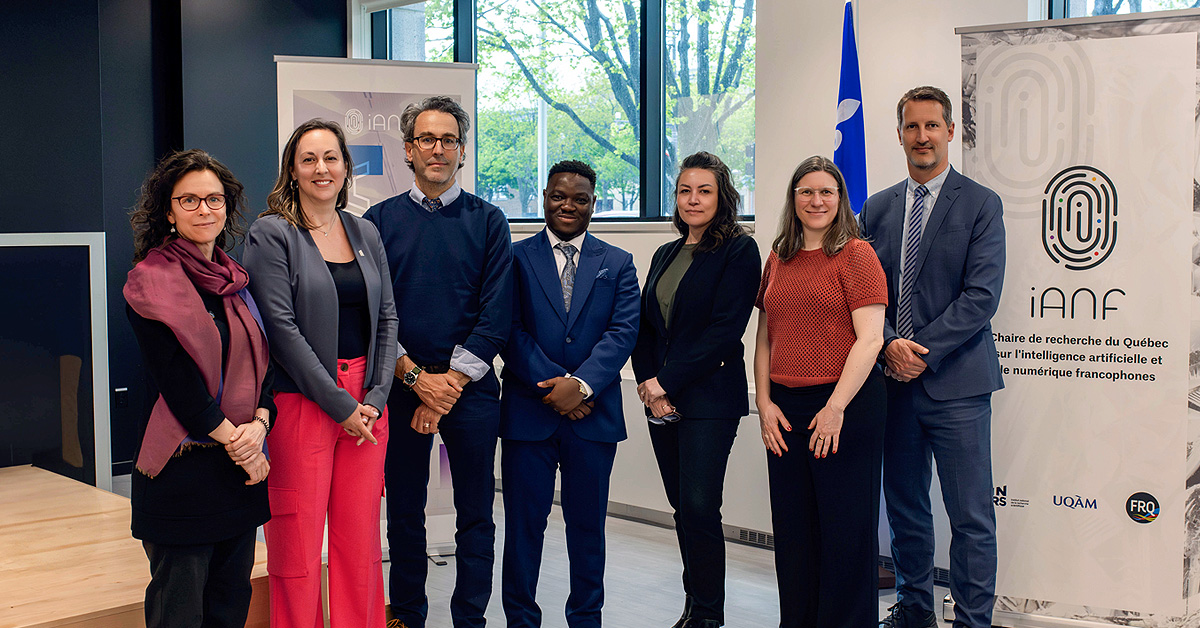
From left to right: Nathalie Roy, Director of Concerted Actions (FRQ), Isabelle Delisle, Scientific Director (INRS), Professor Jonathan Roberge (INRS), Professor Destiny Tchehouali (UQAM), Catalina Briceño, Director of the School of Media (UQAM), Marie-Soleil Cloutier, Director of the Centre Urbanisation Culture Société (INRS), and Sylvain Périgny, Assistant Deputy Minister for University Affairs, Research, International Relations and Digital Technology (MES). Photo credit: Véronique Munger
The first-ever Cultur’IA, a cultural forum on artificial intelligence (AI) in the Francophonie organized by the team behind the Québec Research Chair on Francophone Artificial Intelligence and Digital Technology (IANF Chair), was a resounding success. The event, held as a prelude to the 5th Conference of Francophone Ministers of Culture, brought together nearly 80 participants to explore critical issues such as digital sovereignty, content discoverability, and the promotion of Francophone cultural content.
The co-holders of the IANF Chair, Jonathan Roberge and Destiny Tchehouali—professors at the Institut national de la recherche scientifique (INRS) and the Université du Québec à Montréal (UQAM), respectively—opened the event with a call for collaboration among cultural, political, and civil society stakeholders.
“Artificial intelligence is not merely a technological issue. It has cultural, social, and political dimensions. Through the lens of research, Cultur’IA aims to lay the groundwork for a necessary Francophone dialogue to collectively envision AI that serves diversity and cultural sovereignty.”
Jonathan Roberge, Professor at INRS, Expert in Digital Culture
“These Assises provided an opportunity to share our perspectives, approaches, methods, and outlooks in order to explore various ways of responding to the risks and challenges that the development of AI raises in relation to the balance of our cultural models and Francophone creative ecosystems.”
Destiny Tchehouali, UQAM professor Tchehouali, expert in discoverability and in the governance of digital technologies and AI for the Organisation internationale de la Francophonie (OIF) and UNESCO.
“As researchers, we cannot afford to remain mere spectators, fascinated by the unprecedented opportunities that AI systems offer for our cultural expressions. Instead, we should reflect on the digital challenges of today and tomorrow that will have a lasting impact on the future of our cultures and languages in Quebec and throughout the Francophonie,” adds UQAM professor Destiny Tchehouali.
The event was inaugurated in the presence of Ms. Anne-Marie Jean, Delegate for Francophone and Multilateral Affairs at the Québec Government Office in Paris (Ministère des Relations internationales et de La Francophonie), Mr. Sébastien Cloutier, Director General of Policy, Digital, Communications, and International Affairs at Québec’s Ministère de la Culture et des Communications, and Mr. Henri Monceau, OIF Representative to the United Nations in Geneva and Vienna, and Lead on Digital and AI Governance.
AI in all Its complexity
The discussions highlighted the multifaceted nature of artificial intelligence. Far from being a mere technological tool, AI is reshaping how we understand meaning and the creative process. Three thematic panels addressed timely and concrete issues:
- Discoverability and Cultural Diversity: How can recommendation algorithms better promote Francophone cultural content?
- Inclusion and Representation: How can we design AI systems that reflect the linguistic and cultural richness of the Francophonie?
- Creation and Intellectual Property: What regulations are needed to govern the use of generative AI in cultural production?
Concerted efforts that must extend beyond Québec
Cultur’IA served as a key moment for dialogue, exchange, and mobilization. Participants assessed the challenges of cultural sovereignty in the age of AI, shared inspiring practices, and collectively explored actionable strategies.
The event also aimed to engage Francophone governments in Québec and internationally on the need for ethical and inclusive digital governance.
A promising first year
Symbolically, the event also marked the first anniversary of the IANF Chair, funded and supported by the Ministère de l’Enseignement supérieur in collaboration with the Fonds de recherche du Québec.
This Chair—the result of a strategic partnership between INRS and UQAM—has demonstrated the value of a collaborative and interdisciplinary approach to better understand and guide the digital transformations affecting culture.
“At INRS, we firmly believe that Québec must not only participate in international discussions on artificial intelligence and digital technology but also contribute with its own voices, cultural and scientific references, and autonomous expertise rooted in a long-term vision. This is precisely what Professors Roberge and Tchehouali are doing through the research of the Québec Research Chair on Francophone Artificial Intelligence and Digital Technology,”
Isabelle Delisle, Scientific Director, INRS
Research by the IANF Chair shows how Francophone materials are increasingly marginalized on transnational digital platforms and underrepresented by automated recommendation systems.
Cultur’IA laid the foundation for a lasting dialogue between researchers, institutions, and cultural sectors—an initiative poised to grow and evolve in support of a diverse, equitable, and sovereign digital Francophonie.

